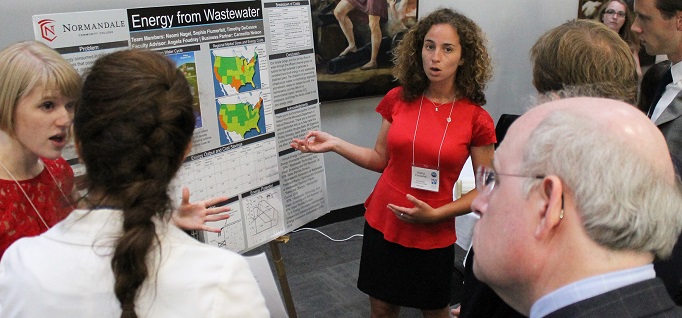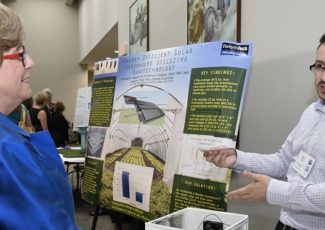Finding STEM-based solutions for real-world problems
By AACC 21st Century Center Staff
December 20, 2016
The 2017 Community College Innovation Challenge fosters the development of crucial innovation skills.
Up for a challenge? AACC, in partnership with the National Science Foundation (NSF), hosts the annual Community College Innovation Challenge (CCIC). It’s designed to foster the development of innovation, research and entrepreneurial skills among community college students in the science, technology, engineering, and mathematics (STEM) fields.
The 2017 CCIC will focus on three themes: Maker to Manufacturer, Energy and Environment, and Security Technologies. AACC is looking for project submissions from teams of community college students, which include a faculty mentor and community and/or industry partner. Applications for the 2017 CCIC are being accepted through Feb. 15.
Ten community colleges will be selected as finalists of the challenge and receive travel expenses to attend an Innovation Boot Camp in Virginia in June. Finalists will have the opportunity to display their projects on Capitol Hill and compete to win cash prizes.
The 2016 Challenge focused on the theme Innovations at the Nexus of Food, Energy and Water Systems, which NSF identified as a priority in seeking new ways to help society deal with growing resource demands.
The 10 student-led and faculty-mentored teams selected as finalists received technical assistance from experts in areas such as team-based design, communicating the value of innovation and transitioning research to commercialization.
As part of the challenge, finalists were given the invaluable opportunity to present their projects to members of Congress, legislative staff, and key STEM stakeholders during a Capitol Hill reception held in their honor. The reception provided student teams with the opportunity to meet and talk with their federal representatives.
Forsyth Technical Community College’s (North Carolina) nanotechnology students took first place in the competition. The students took an innovative approach to applying nanotechnology to maximize the efficiency of greenhouses through solar energy elevated them to the national championship.
Normandale Community College in Minnesota and Virginia Western Community College in Virginia tied for second place.
Learn more about each of the finalist’s projects.
How are STEM students on your campus developing innovation and research skills? Talk about it in LinkedIn.




